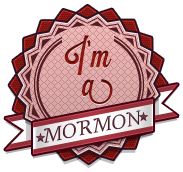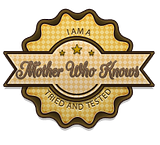 |
| "Little Women" book illustration by Jessie W. Smith |
Did you know that before the early 1900's, no one EVER used the term "teenager?" And not only did the term not exist, but there was also no expected "teenage" behavior and no rampant, cultural adolescent angst.
This morning I read a fascinating, encouraging article from the "Scientific American Mind" magazine that I knew I just had to share on my blog today.
This article addresses the myth that adolescents have a "different" type of brain than adults. The author, Dr. Robert Epstein, wrote the article way back in 2007.
You can read the entire article at this link, and I've also included some great excerpts from the article, as well.
Today, with teens trapped in the frivolous world of peer culture, they learn virtually everything they know from one another rather than from the people they are about to become. Isolated from adults and wrongly treated like children, it is no wonder that some teens behave, by adult standards, recklessly or irresponsibly. Almost without exception, the reckless and irresponsible behavior we see is the teen’s way of declaring his or her adulthood or, through pregnancy or the commission of serious crime, of instantly becoming an adult under the law. Fortunately, we also know from extensive research both in the U.S. and elsewhere that when we treat teens like adults, they almost immediately rise to the challenge.
In 1991 anthropologist Alice Schlegel of the University of Arizona and psychologist Herbert Barry III of the University of Pittsburgh reviewed research on teens in 186 preindustrial societies. Among the important conclusions they drew about these societies: about 60 percent had no word for “adolescence,” teens spent almost
all their time with adults, teens showed almost no signs of psychopathology, and antisocial behavior in young males was completely absent in more than half these cultures and extremely mild in cultures in which it did occur.
Even more significant, a series of long-term studies set in motion in the 1980s by anthropologists Beatrice Whiting and John Whiting of Harvard University suggests that teen trouble begins to appear in other cultures soon after the introduction of certain Western influences, especially Western-style schooling, television programs andmovies. Delinquency was not an issue among the Inuit people of Victoria Island, Canada, for example, until TV arrived in 1980. By 1988 the Inuit had created their first permanent police station to try to cope with the new problem.
Consistent with these modern observations, many historians note that through most of recorded human history the teen years were a relatively peaceful time of transition to adulthood.
Teens were not trying to break away from adults; rather they were learning to become adults. Some historians, such as Hugh Cunningham of the University of Kent in England and Marc Kleijwegt of the University of Wisconsin–Madison, author of Ancient Youth: The Ambiguity of Youth and the Absence of Adolescence in Greco-Roman Society (J. C. Gieben, 1991), suggest that the tumultuous period we call adolescence is a very recent phenomenon—not much more than a century old.FAST FACTS from the Article:
Troubled Teens
1) Various imaging studies of brain activity and anatomy find that teens and adults use their brains somewhat differently when performing certain tasks. These studies are
said to support the idea that an immature “teen brain” accounts for teen mood and behavior problems.
2) But, the author argues, snapshots of brain activity do not necessarily identify the causes of such problems. Culture, nutrition and even the teen’s own behavior all affect
brain development. A variety of research in several fields suggest that teen turmoil is caused by cultural factors, not by a faulty brain.
3) Anthropological research reveals that teens in many cultures experience no turmoil whatsoever and that teen problems begin to appear only after Western schooling, movies and television are introduced.
4) Teens have the potential to perform in exemplary ways, the author says, but we hold them back by infantilizing them and trapping them in the frivolous world of teen culture.
WHY are we parents doing our best to turn our own youth, our precious sons and daughters, into annoying teenagers?! Why are we holding them back in their progression, and cutting their potential short?
If we could get past all the myths we've been taught, and in turn allow our youth to be the adults God designed them to be, can you imagine how society would change?
My mind is reeling from the thought of it.










Dh and I were just talking about this yesterday. What a great article!
ReplyDeleteWe are of the opinion (because we are in the "thick" of it) that children/teens/YA learn their behavior from their peers. When they attend Public School or other institutions like that, they seem to gather all the negative traits that "teens" have and amplify them in each other.
I am so loving this. It helps villify (if only to ourselves) our opinions. Thank you for posting it!
I agree 100%. People ask me why my kids are not like all the other teenagers they see. I tell them, "Because they don't go to the zoo you call high school."
ReplyDeleteJust kidding..I just think it! Seriously though, my young adult children ARE different and it is because I don't send them to the institutional setting of public school. My children's biggest complaint about the teenagers they see is that they all behave like they are on drugs. My kids try to talk about real events in the world and the teenagers around them ONLY talk about high school. They can't talk about anything else because they think high school is the real world. So sad!
Great post and article, thank you for sharing that. My homeschooled kids are different -- most adults always tell me how mature they are, and interesting. I notice that public school teens don't know how to talk to adults or want to. Homeschooled teens interact with adults.
ReplyDelete